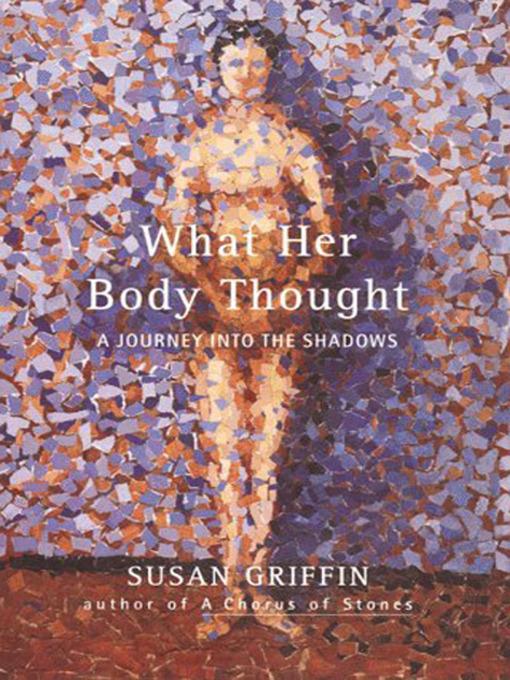
What Her Body Thought
A Journey Into the Shadows
کتاب های مرتبط
- اطلاعات
- نقد و بررسی
- دیدگاه کاربران
نقد و بررسی

January 4, 1999
"The life of the body is at the heart of my story," declares philosopher, ecologist and feminist theorist Griffin, as she describes her harrowing descent into serious illness. An astute cultural critic, Griffin probes two stories of illness--her own and the archetypal tale of women and illness Camille (in book, play, opera and film form)--in an effort to explore the role of illness and healing in society. At the core of Griffin's ruminative narrative is her battle with Chronic Fatigue Immune Deficiency Syndrome (CFIDS). The disease has left her bedridden, unable to care for her own most basic needs and frightened that she will die alone. Raw with grief over her loss of health and fearful of penury as she becomes unable to work, Griffin has also felt tremendous shame at being betrayed by her body--"like a lover seduced and abandoned." She is angry at the way her illness has been minimized by the scientific and medical communities, even by her own friends. Griffin has an exquisite sense of place and a gripping yet lyrical style. However, her constant return to the themes of Camille wears thin by the book's end, and the short prose poems interspersed throughout are distracting--alternately florid and flat. Despite these flaws, the book offers valuable insights into illness and society, elucidating Griffin's theory that "illness itself uncovers hidden reserves of strength." Author tour.

May 1, 1999
As in Kat Duff's Alchemy of Illness (Bell Tower, 1994), feminist Griffin uses her personal battle with chronic fatigue and immune dysfunction syndrome (CFIDS) as a springboard for a critique of Western medical practices. More importantly, the Pulitzer Prize-nominated Griffin (The Eros of Everyday Life, LJ 11/1/95) vividly describes the compound effect of the illness's mysterious symptoms and the absence of adequate social support structures on her mental outlook. Griffin brilliantly summons sensual and emotional impressions from her childhood as she speculates that psychological factors may have contributed to her contracting CFIDS. She also puts her tale in historical context by poetically weaving in the story of Marie de Plessis, the 19th-century French courtesan whose tuberculosis inspired Alexandre Dumas's novel and play (and later the Greta Garbo film) Camille. Highly recommended for philosophy and women's studies collections.--Kim Baxter, New Jersey Inst. of Technology, Newark
Copyright 1999 Library Journal, LLC Used with permission.

May 1, 1999
If a single thread runs through Griffin's deeply felt and creatively intellectual books, it is her recognition that truth always makes itself known. As Griffin struggled to understand the hidden origins and painful lessons of the disease she suffered from for an anguished decade, chronic fatigue and immune dysfunction syndrome (CFIDS), she recognized the "pattern of neglect" that shaped her childhood. She also found herself drawn to the story of another woman's illness, that of a celebrated eighteenth-century Parisian courtesan, who was portrayed first by Alexandre Dumas, then by Verdi in "La Traviata," and christened Camille in a George Cukor film starring Greta Garbo, and who lost her looks, lovers, and fortune to tuberculosis. As Griffin compares her ordeal to that of Camille's, she examines the nexus of disease, shame, sexuality, and poverty then and now in a feminist variation on Susan Sontag's "Illness as Metaphor." Ultimately, Griffin's passionate inquiry greatly extends our understanding of the body-mind connection and of how profoundly our complex responses to illness and healing are shaped by social mores. ((Reviewed May 1, 1999))(Reprinted with permission of Booklist, copyright 1999, American Library Association.)

























دیدگاه کاربران